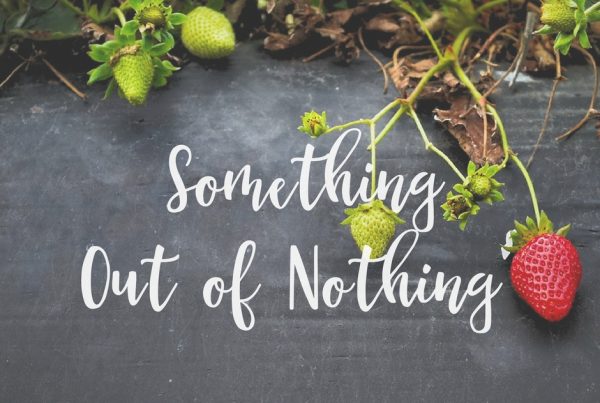Hello friends! Today I would like to introduce you to a new friend of mine named Caryn Dahlstrand Rivadeneira. Caryn (pronounced Car-in) is a writer I met shortly after moving to the Chicago area, and she is a rather accomplished one at that! Over the years she has written for Christianity Today in various capacities, and she has now published two books. In addition to her many gifts, Caryn is also one of the funniest women I know. Her sense of humor seriously gets me every time, and it translates perfectly through her writing.
 In her newest book, Grumble Hallelujah, Caryn strikes a unique and effective tone as she blends her laugh-out-loud humor with an exploration of the challenges of life. Subtitled “Learning to love your life even when it lets you down,” Caryn has found a way to discuss heavy issues in a manner that is not only substantive but is up-lifting and even fun!
In her newest book, Grumble Hallelujah, Caryn strikes a unique and effective tone as she blends her laugh-out-loud humor with an exploration of the challenges of life. Subtitled “Learning to love your life even when it lets you down,” Caryn has found a way to discuss heavy issues in a manner that is not only substantive but is up-lifting and even fun!
With the debut of her new book, I asked Caryn to guest post on She Worships and I know you will enjoy her contribution. No matter where you are in life right now, Caryn’s book will encourage you to praise God…even if that praise comes in the form of a grumbled hallelujah.
_______________________
One of my all-time, hands-down favorite passages is Habakkuk 3:17-18:
Though the fig tree does not bud and there are no grapes on the vines,
though the olive crop fails And the fields produce no food,
though there are no sheep in the pen and no cattle in the stalls,
yet I will rejoice in the LORD, I will be joyful in God my Savior.
I first underlined this word-gem in my Bible twenty-plus years ago. (So, okay, my nonbudding fig tree first represented the lack of boyfriends in my life. Feel free to roll your eyes. . . .) Since then, however, I’ve reread it a zillion times. The images fly from the page, don’t they? Our noses almost itch in the dry, barren vineyard; our eyes blink at the hay bits flit- ting around the empty stalls. Certainly, the troubling truth of the passage smacks us right upside the head: even when life doesn’t turn out how it’s supposed to be, we need to rejoice.
As much as I love this passage, it troubled me because it seemed to contradict all that I wanted to be true about grief. Until I realized I might want to read backward, to see what came before it. Duh.
And wouldn’t you know it? My favorite passage, this beautiful bit, comes at the end of a book with a structure like this: Habakkuk complains; God answers. Habakkuk complains again; God answers again. Only then does our man H get it. But even then, Habakkuk grumbles his hallelujah. You just know he does.
There seems to be something to this grief thing, something worshipful. God uses it to clear our heads and make room for him. The book of James says, “Grieve, mourn and wail. Change your laughter to mourning and your joy to gloom. Humble yourselves before the Lord, and he will lift you up” (4:9-10).
In his book In Memoriam, Henri Nouwen says this about the disciples’ extended period of grief after Jesus ascended: “This long period of mourning was necessary before they were able to receive the Spirit. Only after this long and painful grief were they able to receive the great consolation that their Lord had promised them. For it was only after they had given up clinging to their Lord that his Spirit could descend into their hearts.”
Go figure. This is just what James says. And this is exactly what we see lived out in Esau, Jeremiah, and Habakkuk—not to mention Sarai, Naomi, Job, and many others. They grieved, mourned, and wailed—and were lifted up. They experienced long and painful grief and were able to receive consolation from God.
Maybe because of this, I’ve grown to love yelling at God, waving my arms and carrying on a bit. Well, usually I don’t actually yell as much as whisper near-obscenities at him or huff and cluck my tongue or just think mean thoughts toward God. But I love to let him know how and when he’s messing up my life.
Some might question the wisdom of this, but it’s biblical. Not only do we see this in the book of Lamentations, but how about Habakkuk? Remember him? The guy who wrote my favorite passage ever?
My pastor-friend Gregg recently described this book of Habakkuk as “The Difficult Dialogue”: “Sometimes it’s appropriate to shout and sing hallelujah,” Pastor Gregg said. “Other times to lament and complain.” Had I gotten to him first, he might have even said “grumble.”
It can be difficult to wrap our brains around the idea that our grieving, complaining, and grumbling honor God. Since he’s after honest connection and conversation, though, he seems to honor it. Honest griping— from a place of deep grief or disappointment—seems to get us closer to God.
Later in that same service on Habakkuk, the band played, “Better than a Hallelujah.” The lyrics all ring true and lovely, but these words specifically pressed deep into my heart: “We pour out our misery/ God just hears a melody.” The song goes on to say this is because these are “honest cries” from brokenhearted people. And that is what’s “better than a hallelujah.”
I’m not sure that honest cries are better than honest praises, but the point is that whatever we bring to God honestly and with our whole hearts sounds like a melody to him. God wants our hearts, whether they’re broken, crabby, whiney, or filled-up and jolly. As long as we’re sincere.
How great is that? How great is our God?
Adapted from Grumble Hallelujah: Learning to Love Your Life Even When It Lets You Down (Tyndale, 2011) by Caryn Dahlstrand Rivadeneira. Used with permission. For more about Caryn visit www.carynrivadeneira.com






Thanks for posting this. I’ve been reading Habakkuk lately too. It is now one of my favourite books of the bible. I wrote about what I’ve been learning from it at http://www.joannamuses.com/2011/09/encouragement-from-habakkuk.html
One thing I have been wrestling with when trying to apply Habakkuk is when our complaining crosses the line into being inappropriate. Certainly there is a strong precedent from Habakkuk and elsewhere in the scripture for blunt expression of our frustrations and pain to God but is there a limit? At what point does our expression cross the line into disrespect or sinful accusation against God?
Joanna, that’s a great question! Caryn may want to weigh in, but I think that marriage is a helpful parallel. In marriage, it is ok to be angry with your spouse and voice that anger. However, I try to be careful of name-calling or character attacks when I’m upset with my husband. Likewise, it’s ok to be angry with God and to express your lack of understanding or your frustration with Him. But if your anger strays into assaults on God’s character or is simply mean-spirited, I think it’s important to check yourself. That doesn’t mean you aren’t free to ask those difficult questions (ie. “God, are you really good??”) but anger can easily turn to bitterness and condescension, so we have to keep an eye on our own hearts.
Hi Sharon,
Your blog looks awesome! I really love the design. It’s great to see how God is using your writing.
Keep up the awesome work!